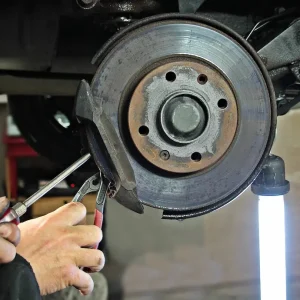Automotive experts have disagreed on whether or not the new UK car market will stabiliseby the end of the year following new car registration figures falling for four consecutive months.
According to forecasts published by the Society of Motor Manufacturers and Traders (SMMT), new car registrations are set to hit 2.594 million units by the end of the year, a drop of 3.7% on 2016’s record-breaking figures.
This would bring 2017’s figures into line with results of the previous few years, which have all experienced “exceptional” growth, according to the body, bringing sales volumes to a more realistic figure.
Ian Fletcher, principal analyst for IHS Markit’s automotive division, agreed with the SMMT’s projections and told BusinessCar that he wasn’t surprised by a slump in demand. He – like many – put the drop down to economic uncertainties currently being created by a combination of Brexit talks taking place and a weakening pound.
“At the moment, we expect car sales to be down by 4% by the end of the year,” he said. “You’ve got to remember that the market has grown and grown for six or seven years, since the last economic crash. It’s a surprise it has grown for so long.”
But Jayson Whittington, chief car editor at valuations expert Glass’s, believes the market won’t stabilise, suggesting instead that the overall fleet market – which has consistently outperformed the retail market – could drop by as much as 5.0% by the end of the year.
“The SMMT’s projections keep changing,” he told BusinessCar. “However, with manufacturers needing to hit targets, there will be a bit of tactical registering to artificially increase demand.”
Whittington pointed out that in the last year, private car registrations have fallen for ten months, claiming that many drivers are opting to get behind the wheel of a company car for the first time, which also boosts fleet numbers, but he still believes the market will suffer for the aforementioned economic uncertainties.
Samuel Tombs, chief UK economist at Pantheon Macroeconomics, said the four months of decline showed that businesses are putting off purchasing ‘big ticket’ items such as vehicles, predicting the market won’t recover just yet.
“Car sales tend to lag consumer confidence by about six months – many of the cars registered in July will have been ordered several months ago – so the recent post-election slump in sentiment indicates that the downturn has further to run,” he said, speaking to the BBC at the start of this month.
The SMMT does not publish predictions for individual sectors, however, last year, 1.380 million units made their way to fleets, a rise of 4.8% on 2015’s figures.
Figures from July 2017 – the most recent available when we went to press – showed that new car registrations fell by 9.3% during the month, with fleet-specific sales dropping by 10.1%.
Last year, fleet sales outpaced those of private car registrations and while the same is true at the moment (as of July, 817,767 units went to fleets compared with 685,385 to private car buyers), IHS’s Fletcher was hesitant in predicting whether the trend would continue.
“It’s hard to tell at the moment, but fleet customers will be looking at the market very carefully,” he said.
Diesel may well be unpopular in certain circles, with many-a-negative headline in the mainstream media contributing to declines in oil-burning-car registrations of 20.1% last month and 11.0% year to date.
The SMMT is striving to educate the public that not all diesels are bad, but Hawes blamed “months of speculation” surrounding clean air plans for the plunge.
Alas, some things stay stable, whether or not the market is in rude health or not – according to the SMMT, the Ford Fiesta is still the fleet industry’s most popular car so far this year, with 29,177 examples registered. It is followed by the Ford Focus (28,161) and Vauxhall Astra (26,449).





